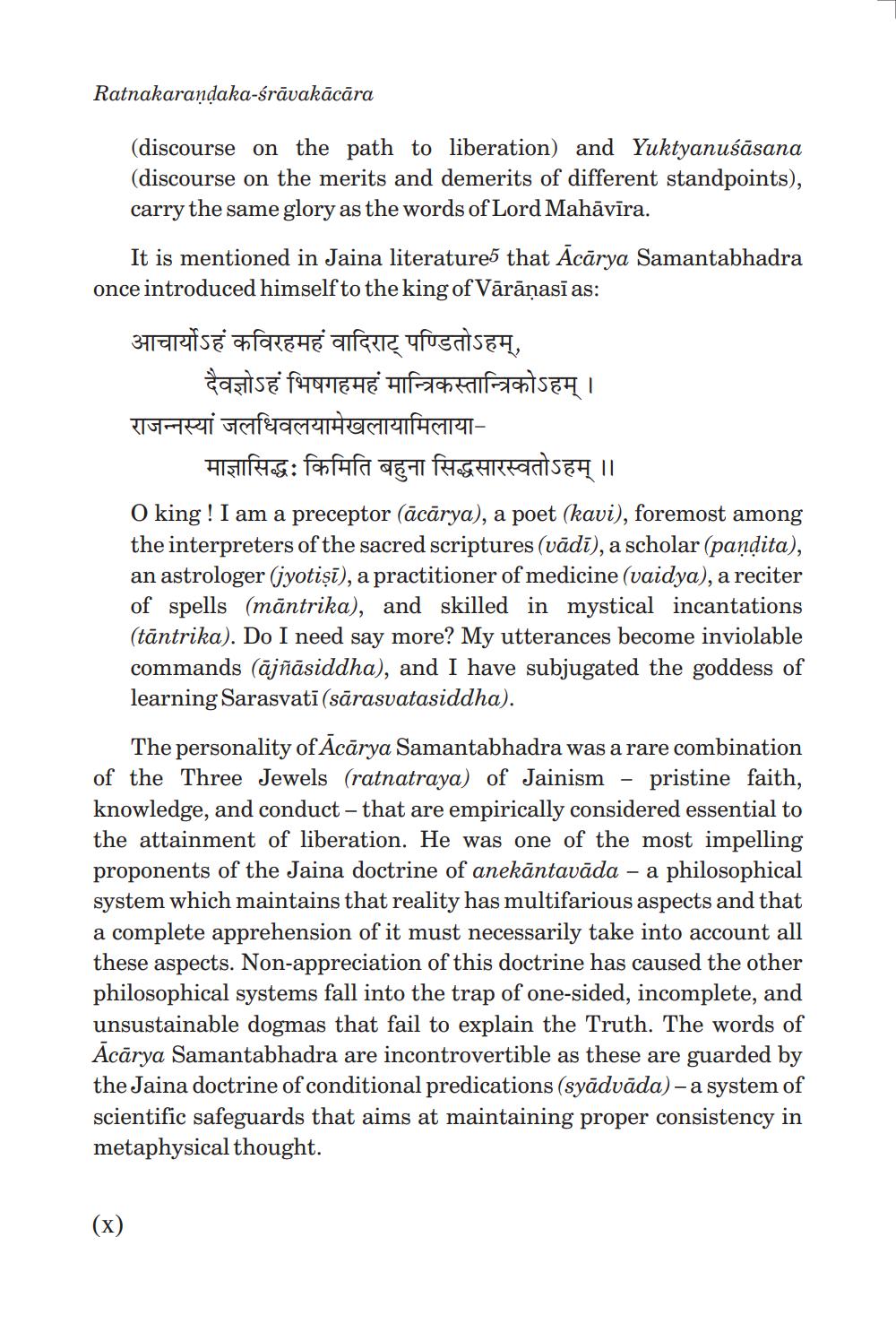________________
Ratnakarandaka-śrāvakācāra
(discourse on the path to liberation) and Yuktyanusāsana (discourse on the merits and demerits of different standpoints), carry the same glory as the words of Lord Mahāvīra.
It is mentioned in Jaina literature5 that Acārya Samantabhadra once introduced himself to the king of Vārāṇasī as:
(x)
आचार्योऽहं कविरहमहं वादिराट् पण्डितोऽहम्,
दैवज्ञोऽहं भिषगहमहं मान्त्रिकस्तान्त्रिकोऽहम् ।
राजन्नस्यां जलधिवलयामेखलायामिलाया
माज्ञासिद्धः किमिति बहुना सिद्धसारस्वतोऽहम् ।।
O king! I am a preceptor (ācārya), a poet (kavi), foremost among the interpreters of the sacred scriptures (vādī), a scholar (pandita), an astrologer (jyotiṣi), a practitioner of medicine (vaidya), a reciter of spells (mantrika), and skilled in mystical incantations (tantrika). Do I need say more? My utterances become inviolable commands (ājñāsiddha), and I have subjugated the goddess of learning Sarasvati (sārasvatasiddha).
The personality of Acarya Samantabhadra was a rare combination of the Three Jewels (ratnatraya) of Jainism pristine faith, knowledge, and conduct - that are empirically considered essential to the attainment of liberation. He was one of the most impelling proponents of the Jaina doctrine of anekantavada - a philosophical system which maintains that reality has multifarious aspects and that a complete apprehension of it must necessarily take into account all these aspects. Non-appreciation of this doctrine has caused the other philosophical systems fall into the trap of one-sided, incomplete, and unsustainable dogmas that fail to explain the Truth. The words of Acarya Samantabhadra are incontrovertible as these are guarded by the Jaina doctrine of conditional predications (syadvāda) - a system of scientific safeguards that aims at maintaining proper consistency in metaphysical thought.
-




